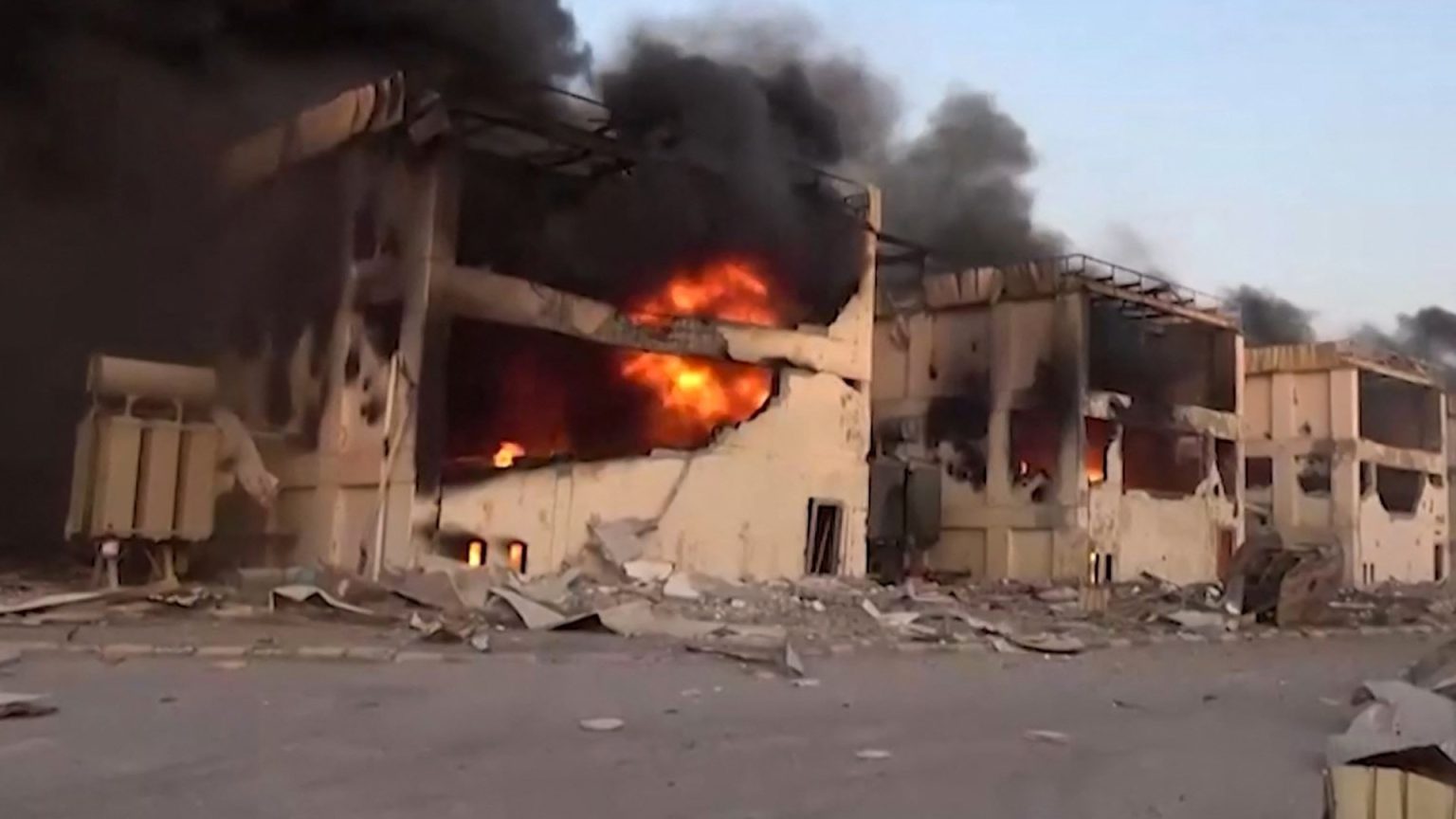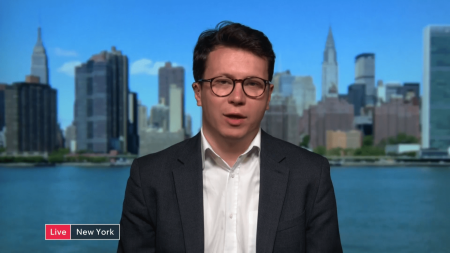Israel has intensified its military campaign against Yemen’s Houthi rebels, with Prime Minister Benjamin Netanyahu issuing a stern warning that the current offensive is just the beginning of a broader effort to curtail the group’s ability to threaten Israel. Netanyahu drew parallels to previous Israeli actions against Hamas in Gaza, Hezbollah in Lebanon, and Iranian-backed forces in Syria, suggesting that the Houthis would face a similar fate if they persisted in their attacks. This assertive stance underscores Israel’s determination to address perceived threats emanating from Yemen, even at a considerable distance.
The recent strikes targeted key infrastructure in Yemen, including Sanaa International Airport and the Hezyaz power plant, both located near the capital city. Additionally, Houthi bases in the strategically important ports of Hodeida, Salif, and Ras Qantib were also hit. Footage circulating after the attacks showed significant damage to the Ras Kutaib power station in Hodeida, engulfed in flames following multiple airstrikes. These attacks highlight Israel’s willingness to target infrastructure perceived as supporting the Houthi’s military capabilities, potentially impacting civilian access to essential services.
Netanyahu’s statement, “We’re just getting started with them,” conveys a clear message of escalation and a long-term commitment to confronting the perceived Houthi threat. He emphasized that Israel would not tolerate attacks from the group, stressing their intention to strike “to the bitter end” until the Houthis understood the consequences of their actions. By referencing past conflicts with Hamas, Hezbollah, and Syrian forces, Netanyahu implied that the Houthis, too, would be forced to learn a similar lesson through military pressure.
The timing of the intensified Israeli campaign is notable, coinciding with the ongoing conflict in Gaza. The Houthis, who are backed by Iran, have reportedly launched missile attacks towards Israel since the beginning of the Gaza conflict, further complicating an already volatile regional situation. This concurrent escalation suggests a broader strategic calculation by Israel to address multiple fronts simultaneously, potentially aiming to deter further attacks from both Hamas and the Houthis, both perceived as proxies of Iran.
The interception of a missile launched from Yemen, a distance of approximately 1,000 miles, during the Israeli raids underscores the significant range of Houthi missile capabilities and the potential threat they pose to Israel. This incident also highlights Israel’s air defense capabilities and its vigilance in monitoring and intercepting incoming projectiles. The geographic distance between Yemen and Israel adds another layer of complexity to the conflict, illustrating the extended reach of regional tensions and the potential for escalation across vast distances.
The escalating conflict between Israel and the Houthis raises several concerns, including the potential for further destabilization of an already fragile Yemen, facing a protracted humanitarian crisis. The targeting of critical infrastructure could exacerbate the suffering of the Yemeni population, potentially impacting access to electricity and essential services. Furthermore, the involvement of regional powers like Iran adds a complex geopolitical dimension, raising the risk of a wider regional conflict. The international community faces the challenge of finding a diplomatic solution to de-escalate the situation and prevent further humanitarian suffering in Yemen while addressing Israel’s security concerns. The long-term implications of this escalating conflict remain uncertain, but the current trajectory suggests a protracted and potentially volatile period ahead.











